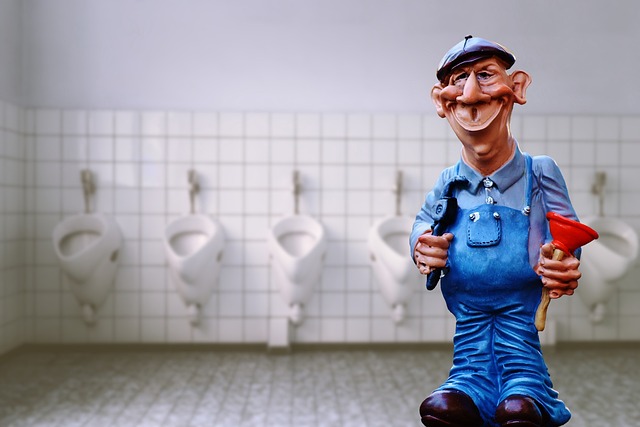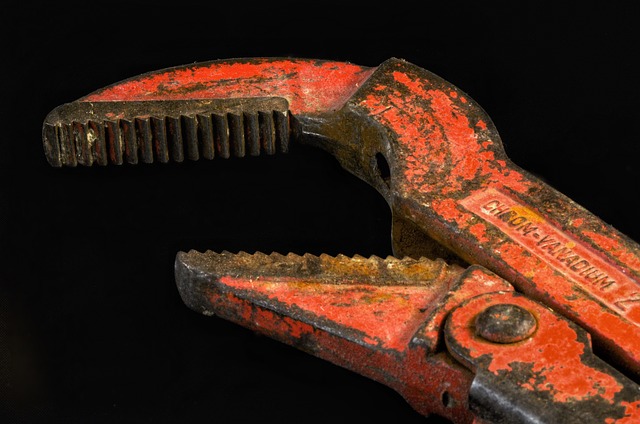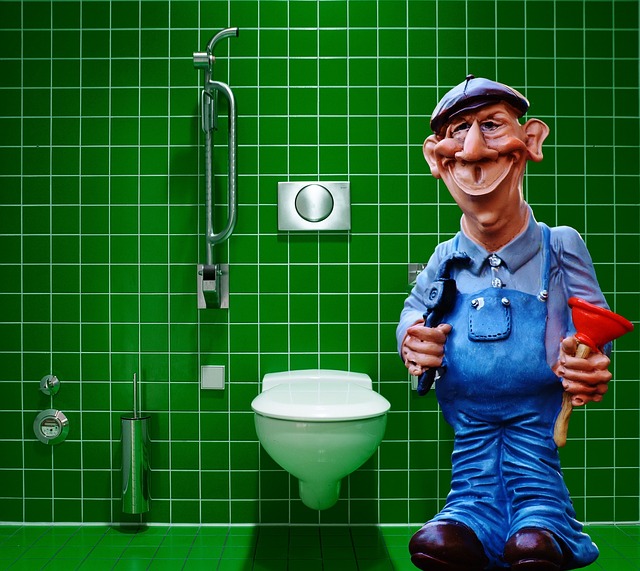DIY plumbing fixes offer immediate gratification, control, and potential cost savings, but misdiagnosis can lead to further damage, water damage, structural hazards, or health risks. While DIY is suitable for simple tasks, complex issues require professional plumbers who use specialized knowledge, tools, and permits to prevent future complications. Comparing DIY vs. professional plumbing, the latter ensures jobs are done correctly and safely, providing long-lasting solutions and saving time and money in the long run.
In the realm of home maintenance, the age-old debate rages on: DIY plumbing fixes or professional repairs? Navigating this labyrinthine choice can be a confusing dance. This article serves as your guide, dissecting the pros and cons of each approach. We weigh the advantages of a DIY project—from cost savings to hands-on learning—against the expertise and advanced tools offered by professionals. By delving into the details of DIY plumbing, specific tools needed, and the benefits of professional service, we help you decide which path wins in terms of efficiency, longevity, and long-term effects on your plumbing system.
DIY Plumbing Fixes: Pros and Cons

DIY plumbing fixes have gained popularity, offering homeowners a sense of autonomy and cost-saving measures. Pros include immediate gratification, control over the process, and potential long-term savings. Many basic tasks like fixing a leaky faucet or unclogging drains can be tackled with readily available supplies and step-by-step guides. This approach empowers folks to take charge of their homes, fostering a sense of accomplishment.
However, DIY plumbing comes with its cons. Misdiagnosing issues can lead to further damage and costly repairs. Plumbing involves intricate systems and hidden problems that might not be immediately apparent. Mistakes could result in water damage, structural hazards, or even health risks. While DIY can be satisfying, it’s crucial to recognize limitations. For complex or uncertain situations, professional plumbing services offer expertise, ensuring jobs are done right, preventing potential disasters, and saving time and money in the long run when compared to DIY vs. professional plumbing.
– Advantages of DIY approach

The DIY (Do-It-Yourself) approach to plumbing repairs offers several advantages for those who are handy and eager to save costs. One significant benefit is the potential for substantial financial savings. Many minor plumbing issues can be resolved with simple tools and a bit of know-how, allowing homeowners to avoid expensive professional charges. Additionally, DIY plumbing fixes provide an opportunity for hands-on learning and problem-solving skills development. By tackling these tasks, individuals can gain a better understanding of their home’s plumbing system, fostering a sense of self-reliance. This approach is particularly appealing for quick, one-time repairs or when dealing with issues that don’t require specialized knowledge or equipment.
However, while DIY methods have their allure, there are limitations to consider. Complex plumbing problems often demand expertise and tools beyond the typical homeowner’s reach. Attempting to fix these issues without proper training can lead to further damage or safety hazards. Moreover, some tasks may require specific permits or adhere to local building codes, which could be challenging for DIYers to navigate. For major plumbing repairs or installations, enlisting a professional plumber is often the safer and more reliable choice, ensuring the job is done correctly and preventing potential future complications.
– Common mistakes to avoid

When it comes to plumbing repairs, many homeowners opt for DIY solutions, believing it’s a cost-effective way to tackle common issues. While this approach has its advantages, it’s not without risks. One of the biggest mistakes to avoid is assuming that every plumbing problem is straightforward. What seems like a simple leak or clogged drain could be indicative of more complex issues, requiring professional knowledge and tools to diagnose accurately.
Another blunder is not understanding the potential consequences of botched repairs. Improperly fixed pipes can lead to water damage, mold growth, and even structural harm to your home. Unlike DIY fixes that might offer temporary relief, enlisting a professional plumber ensures long-lasting solutions. They have the expertise to identify root causes, providing comprehensive solutions tailored to your plumbing system.
When it comes to plumbing repairs, the choice between DIY fixes and professional services often depends on the scope of the problem. While DIY methods offer cost-effectiveness and self-satisfaction, they can also lead to common mistakes and temporary solutions. Professional plumbers, on the other hand, provide expert knowledge, ensuring long-lasting repairs. For minor issues, DIY might be a viable option, but for complex plumbing problems, enlisting a professional’s help is often the best course of action to prevent further damage and ensure a reliable, safe, and efficient fix. So, whether you choose DIY or professional plumbing, understanding your capabilities and when to seek expert assistance is key.
References: Plumber | Tradesperson | Toilet
